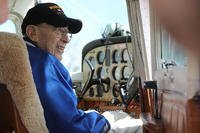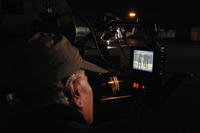Our sister site, DoDBuzz, recently posted this article asking; why will it take so long to field the Air Force's new bomber if it's going to be built using existing technologies? Remember, Pentagon officials said during yesterday's budget rollout that they have requested $197 million in FY-12 to kick off a bomber program expected to field jets in the mid 2020s.
I thought this question might be of interest to our DT readership so here are the thoughts on the matter of several experts who know a thing or two about bomber tech.
First off, Teal Group aviation analyst thinks it's a matter of finding enough cash in an age of government austerity combined with the sheer difficulty of building modern low-observable jets:
"Finding the resources to create a new airframe, or series of airframes, is tough given competing priorities [such as the F-35 and the Navy's SSBN (X) ballistic missile sub] and the overall budget environment.""Technical maturation is also an issue," said Aboulafia who pointed out the amount of time it has taken to field the F-35 even though it has been in development since the mid-1990s. "Just because we have the building blocks today doesn’t mean that we can create the fortress overnight."
Former Air Force Secretary Michael Wynne, who was a champion of the new bomber program before Defense Secretary Robert Gates put it on hold in 2009, added that the main challenge to fielding such a jet will be integrating all the existing technology required for a 21st Century long range bomber onto the jet. In other words, making sure today's most high tech engines, avionics and sensors all work well together:
Perhaps most challenging will be hardening the plane for nuclear missions, "we haven't nuclear hardened an airplane in a while," said Wynne. All of this means that it will likely take until the middle of this decade to get a test plane flying, noted Wynne. And this means it will take several more years of flight testing which means the first production variants will start to be built toward the end of the decade.
And then there's this quote from Loren Thompson of the Lexington Institute:
"This is just the latest evidence that the Pentagon takes way too long to field new equipment," said Thompson. "If the technologies are mature today, they will be outdated by the time they reach the field using our baroque acquisition process."









